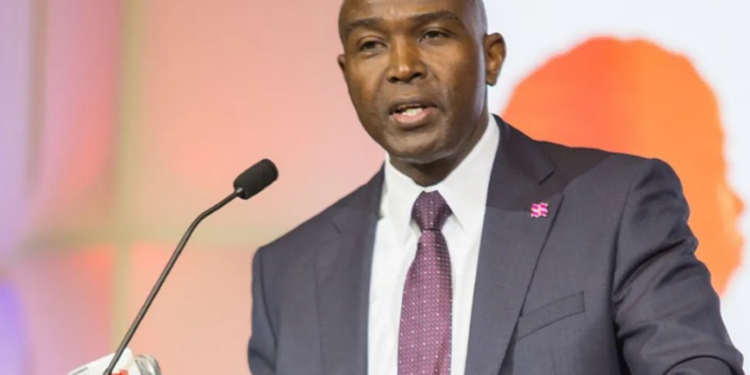Philip Mshelbila, the Managing Director at Nigeria Liquefied Natural Gas (NLNG) Limited says Train-7 has reached 52% completion.
He said this during a recent engagement session with Simbi Wabote, the Executive Secretary of the Nigerian Content Development and Monitoring Board (NCDMB).
According to him, the $5 billion Train-7 project is now at 52% and employs 8,300 Nigerians across different levels of skillset. He said:
- “We cannot have a better Nigeria unless we develop the capacities of Nigerians, the vision of NLNG is to be a globally competitive LNG company, helping to build a better Nigeria. We recognize the role of the regulator and are happy you recognize that of the operator and the need for regular engagement.”
Train-7 could lack a gas supply
Dr. Mshelbila expressed concerns over the potential completion of the Train-7 project without available feed gas for its operation.
He highlighted that despite substantial progress in constructing the Train-7 plant, the necessary deepwater gas projects required to supply feed gas for Train-7 and future expansions have not been activated by international oil and gas companies (IOCs).
This issue could result in the Train-7 project being finalized but lacking the gas required for its operation.
He further addressed the challenges faced by the company in obtaining sufficient gas supply, leading to underproduction by its six plants, operating at under 50% of their total capacity.
To address these hurdles, Dr. Mshelbila outlined various strategies, including collaborating with security agencies to prevent pipeline vandalism and working with joint venture partners to boost gas production.
Additionally, the Nigeria LNG Board of Directors approved the procurement of gas from both international and indigenous producers to enhance the performance of Trains 1-6.
He emphasized that NLNG largely depends on joint venture partners like Shell Petroleum Development Company (SPDC) Limited, Total Energies, and Nigerian Agip Oil Company (NAOC) for feed gas.
However, supply pipelines are frequently affected by vandalism, along with facility failures and reduced production from aging wells, causing significant disruptions in the gas supply chain.
Insights on gas supply challenges
In October 2023, Nigeria’s Minister of State for Petroleum Resources (Gas) visited NLNG at Bonny and Dr. Mshelbila told him that the company’s most pressing challenge, threatening both their current operations and future expansion plans, revolves around feed gas supply.
According to him, Trains 1 to 6 are operating at roughly 50% of their potential capacity due to prolonged issues in gas supply.
This situation persists due to crude oil theft impacting associated gas supply, leaving the plants underutilized not due to a lack of capacity but due to insufficient feed gas availability.
He also stated that while the company aspires to establish Train 8, the absence of a clear gas source hampers their progress.
He noted that the company’s belief is that the required gas can only be sourced from deepwater reserves, but the terms for obtaining it need to be addressed.
Explaining further, he said the existing Production Sharing Contracts (PSCs) governing deep-water exploration do not offer commercially viable terms for producers, further complicating NLNG’s efforts to secure the necessary gas supply.













